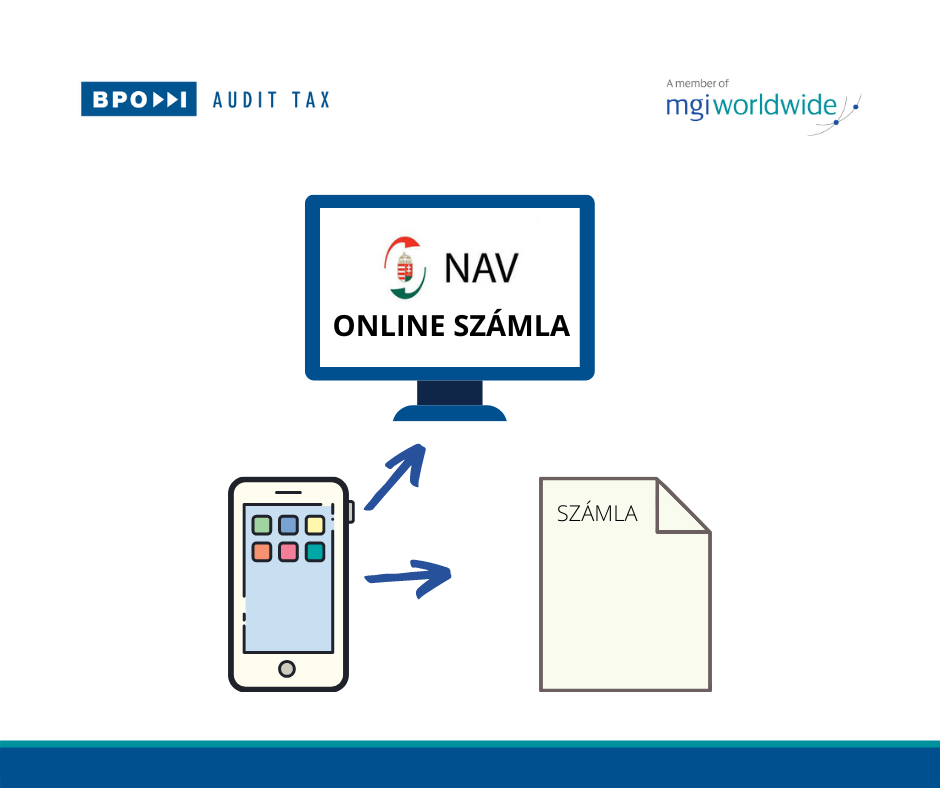
The legislative change also causes changes in the structure of the data to be submitted, which entails further development obligations for the invoicing software. However, new services are appearing in the Online Invoicing System. For this reason, it is necessary to switch from the currently used 2.0 schema to the 3.0 XSD schema.
The essence of the rules, which will come into force at the beginning of next year, is that not only data on invoices issued to taxable persons will have to be reported without a threshold, but this range will be expanded. However, it should also be considered in the developments that the mandatory data content of the invoices and the data reporting will not be the same for some customer groups. Let’s see these groups:
- resident or Community taxable customers – name, address and tax number (Community (EU) tax number for customers in the Community) are obligatory on the invoice and in the data reports to NAV (Hungarian tax authority) as well,
- non-Community taxable customers – name and address are mandatory, the indication of the tax number is only a possibility both on the invoice and in the data reported,
- non-taxable and not private customers (including condominiums, associations and foundations that do not carry out economic activities and bodies that perform exclusively public-authority activities) – the name and address must be indicated on the invoice and in the data reported,
- private customer – the name and address are mandatory on the invoice, but this information cannot be included in the data reported.
It is important to emphasize that if the customer is a private individual, a marker must be used for the data reporting, as in this case the name and address of the customer cannot be included in the data reported.
In addition to the change in customer data, developments were also needed due to the provision of invoice tax amounts for Community and export transactions. In version 3.0, the tax codes have been expanded (e.g. EU tax exempt, outside the territorial scope of VAT, etc.): in the new data reports, the markings of the tax codes must be given both with a code and the description of the code on the invoice.
In addition to the expected increase in the obligation, the new service, which will be available with the new version, should also be mentioned. In the Online Invoicing System, data reporting treated as electronic invoices may also be filed. In such a case, the full data content of the invoice is included in the data report, not just the data according to the provisions of the VAT Act. Exemptions to this are e.g. invoices issued to a private individual, as in that case the name and address of the customer cannot be included in the data reported.
It is important to point out that the obligation to store invoices still has to be solved by the taxpayers (seller and customer), with data reporting NAV will not take over this noble task from them.
The VAT Act requires the customer to consent to electronic invoicing, which may be verbal, written or implicit acceptance.
As an additional new service, we can expect that processing of invoices by the receiver will further be assisted by the new version to be used from next year, which will further reduce manual data recording. In the currently used system, it is not yet possible to upload additional, individual data (e.g. order number, delivery note number, etc.) into the accounting software, so now, after uploading, further modifications are required for full posting.
To improve this process, optional data that can also be given will be available in the new version applicable from next year, making invoice processing simpler and faster.
As written above, the changes that will take effect early next year will also require developments to prepare invoicing software for data reporting in the new system. The information and documentation published on the website of NAV help the developers not only in Hungarian, but also on English and German (https://onlineszamla.nav.gov.hu/dokumentaciok).
In addition, NAV also gives developers the opportunity to ask questions about the developments and their technical solutions in a professional forum. (https://github.com/nav-gov-hu/Online-Invoice/issues).





